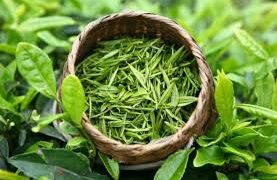
Whether you live in Brazil or somewhere else in the world, you must have heard about Brazilian coffee. Arabica and robusta are the most popular coffee bean types. Despite both being popular, arabica has more lovers. If you are a coffee lover, you must know about arabica coffee beans. However, do you really think arabica is better than robusta? You can find that out in this article. This article will guide you to choose between these two types of coffee to find your new favorite.
Are you curious to know which coffee beans are better? Before you find out which one is better, you must know what these coffee types are. In other words, you must have basic knowledge about these two varieties of coffee beans. So, here, we have discussed these two types of coffee beans. After talking about the basics, we will talk about the difference between them. Once you go through them, you will be able to make the right choice to select the coffee beans and then import robusta coffee or arabica coffee from Brazil.
What is Arabica Coffee?
Arabica coffee is obtained from the beans of an arabica coffee plant, which are originally found in Ethiopia. Arabica is the most popular coffee type across the world, which fills about 60% – 75% of the total coffee cups. We have listed some of the most common types of Arabica coffee found across the world.
- Typica
- Bourbon
- Caturra
- Kona
- Pacamara
- Gesha
- Mocca/Mokha
- Villalobos
- Jackson
- Pacamara
- Villa Sarchi
- Maragogype
- Jamaican Blue Mountain
What is Robusta Coffee?
Robusta coffee is obtained from the beans of the canephor coffee plant, which originates in Africa. Robusta coffee beans have a primarily better taste and are used mainly for instant coffee, espresso, or as a filler in the blended coffee mix. This type of coffee is not as popular as arabica coffee.
We talk more about the difference between these types of coffee beans in the next section of this article. If you want to know more about their differences, please read the following part.
Difference between Arabica and Robusta Coffee
- Less caffeine content:
Arabica contains 1.5% caffeine content while robusta coffee contains 2.7% of caffeine. Since caffeine has some negative impact on people, they prefer having the coffee type with lesser caffeine content, which is arabica coffee. Other than that, caffeine is also responsible for the bitter taste of coffee, which is why robusta tastes more bitter.
- Higher acidity:
Arabica coffee has higher acidity than robusta coffee, which makes it taste better. Just like wine, arabica coffee also tastes good due to its high acidity. Also, due to high acidity, fruit, chocolate, and nutty flavors can be added to arabica coffee. However, if you do that with the coffee type with lower acidity, you will only find some woody or burnt rubber flavor.
- More pleasant flavor
Well, this is an undeniable fact. Arabica coffee has more pleasant flavors than robusta coffee. The flavor of the arabica coffee beans is described as being rich with hints of chocolate, nuts, fruit, and berries. On the other hand, Robusta coffee beans taste bitter, earthy, and rubbery.
- More sugar content:
Arabica coffee contains twice the amount of sugar present in Robusta coffee. As more people prefer the sweet flavor over the bitter flavor, they prefer arabica coffee over Robusta.
- Popularity
As we have mentioned earlier, arabica coffee fills over 60% – 75% of coffee cups across the world. On the other hand, Robusta coffee only makes up to 40% of the coffee cups.
- Different smell
Arabica coffee smells also different from robusta coffee. The arabica coffee beans smell like blueberries, while the robusta coffee beans smell like peanuts.
The Bottom Line
So, do you have a favorite coffee bean now? If you have made a choice, you can import robusta or arabica coffee from Brazil. We hope you have had fun learning more about coffee beans. So, now, make the right choice and have your favorite coffee






